The Arts Digital Research Seed Fund was launched in 2023 to support researchers across the Faculty of Arts to develop research projects and build capacity in digital topics and research methods.
Successful projects receive support from the Arts Digital Lab in the form of:
- Funding for up to 200 hours of research assistant time (made up of 10 hours of project scoping, 180 hours of work directed by the project leader, and 10 hours of project reporting), which may be split between two or more students;
- Support to recruit research assistant(s) with relevant skills for the project;
- Training and mentoring of the research assistant(s); and
- Advice and opportunities to present or workshop ideas at Digital Seed Fund workshops and Digital Humanities Research Network sessions.
How to apply
The Arts Digital Lab is pleased to invite applications for the Faculty of Arts Digital Research Seed Fund. In 2026 the Faculty will provide funding to support up to five research projects, and a sixth project will be supported by QuakeCoRE CEISMIC.
Applications are welcome from researchers across the Faculty of Arts, including postdoctoral fellows and staff in non-continuing roles. Researchers from outside the Faculty may be co-investigators, but the project leader must be from within the Faculty of Arts. Current ADL committee members may apply, but must recuse themselves from the selection process.
Complete the application form, outlining the aim of the research, the digital research component, timeline and likely outcomes (e.g. publication, digital output, external funding bid).
Project leaders of the 2025 round will present on the outcomes of their research at a Faculty research symposium on 9 January 2026. Prospective applicants are strongly encouraged to attend this symposium and the proposals workshop the following day.
Applications close Monday 2 March 2026
2025 Arts Digital Seed Fund Projects

Community Notes on Social Media: Democratic Epistemology in Practice
Elizabeth Stewart
Faculty of Arts Digital Research Seed Fund Project 2025
Misinformation online presents a particularly thorny challenge for social media platforms, who must wrestle with the competing values of free expression and accurate information. How this tension is resolved has important implications for democracy, human rights, health, and climate change, among other things. For several years, Facebook relied on third-party fact checkers to provide analyses of content flagged as misinformation. The resulting fact checks would be appended to posts which, if found containing misinformation, would be ranked lower on users’ feeds. However, researchers and the public alike have criticized professional fact checking for checking unverifiable claims and for biased verdicts. In light of perceived bias, Meta has recently announced important changes to their content moderation practices in the US, shifting from third-party fact checkers to a Community Notes model, which X currently employs. This model relies on crowdsourced fact checks from platform users, rather than on professional fact checkers. Users enrolled in the Community Notes program can write a note about any post, but in order for that note to be published a sufficient number of enrolled users must vote to approve it.
Given the scale of misinformation on social media, there are pressing questions regarding whether and how these content moderation methods address misinformation differently. This project is an initial examination of the epistemic practices of crowdsourced fact checkers.
Image: Jason Howie, CC BY 2.0 https://creativecommons.org/licenses/by/2.0, via Wikimedia Commons

Germany and the Pacific Islands: Media Framing and Discursive Construction
Mathew Doidge and Serena Kelly
Faculty of Arts Digital Research Seed Fund Project 2025
German foreign policy has historically been tied to a core set of tenets, rooted in the historical experiences of the Second World War and of the post-1989 reunification process. These have included: an emphasis on soft power mechanisms (e.g. ‘Wandel durch Handel’) and an aversion to the application of hard power; a commitment to multilateralism and a rules-based international order; and a reluctance to engage in geopolitical contestation. Recent events, however, have placed a strain on this values framework. The emergence of the geopolitically-charged Indo-Pacific context, and the 2022 Russian invasion of Ukraine (recognised by Olaf Scholz as a Zeitenwende to which Germany would need to respond), have forced Germany to consider its role and place on the global stage. Since 2020, this has included an apparent rediscovery of the Pacific Island space, a long neglected area in Germany’s external relations.
This project constitutes a first step in a broader project examining Germany–Pacific engagement. Through a study of news media, its intent is to establish a baseline understanding of the way in which Germany is framed and understood in the Pacific Island space (here defined as the membership of the Pacific Islands Forum [PIF], excluding Australia and New Zealand), and correspondingly the way in which the Pacific Islands are framed and understood in German media.
Image: Kahuroa, Public domain, via Wikimedia Commons

Māori/Iwi Infrastructure Mapping
Garrick Cooper and Hamuera Kahi
Faculty of Arts Digital Research Seed Fund Project 2025
Infrastructure development, often discussed and analysed at a nation state level, has received increasing scholarly attention over the last 10 years in what is sometimes referred to as the “infrastructure push” or “ turn”.
That the “infrastructure turn” in the Global South (in decolonial literature indigenous peoples of Global North nations are seen as part of the Global South) is increasingly being discussed, particularly with the greater visibility of BRICS (a grouping of Global South nations) in geo-political discourse, raises the question to what extent can Māori/iwi aspirations for greater autonomy be advanced with more focussed attention on infrastructural needs. By circumstance and perhaps by necessity Māori/iwi aspirations have largely leant on the machinery of the New Zealand government. Yet, as has long been demonstrated, particularly in service delivery areas like health, education and social welfare, yet alone the legal system, Māori have not fared well. On the back of iwi settlements, but not only, the Māori economy has grown exponentially over the last few decades. If internationally infrastructure investment has been demonstrated to aid and stimulate economic development, it would follow that a more tailored and bespoke approach to infrastructure that meets the need of Māori/iwi would contribute likewise to Māori economic aspirations.
This project looks to map out existing activities and services to reveal future infrastructure investment possibilities.
Image: David Palmer, Creative Commons Attribution-Share Alike 4.0 International via Wikimedia Commons
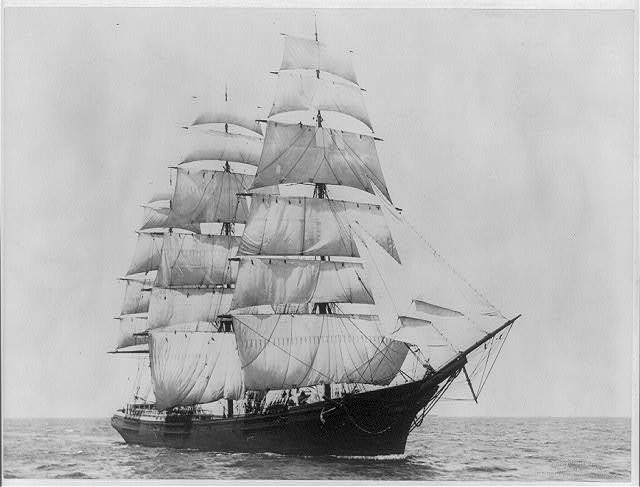
Uncovering hidden voices: digitising New Zealand’s nineteenth-century shipboard diaries to explore language, identity and experience
Sarah van Eyndhoven and Lyndon Fraser
Faculty of Arts Digital Research Seed Fund Project 2025
This project seeks to digitise the shipboard diaries of 19th century Scottish, Irish and English settlers immigrating to New Zealand. It will apply a variety of digitisation and text mark-up methods to historical collections held by the Canterbury and Otago museums, to transform these materials into text-searchable and geo-socially tagged documents, incorporate these into an existing historical linguistic corpus, and produce a public-facing searchable resource. This will enable complex searches into the geographic origins and destinations of these settlers, quantitative investigations into the frequencies of different linguistic variants and topics discussed in the diaries, and qualitative analyses of historical and sociological themes of interest, such as identity, materiality, community and death. Converting these historical diaries into an accessible and searchable output offers a significant contribution to New Zealand history, linguistic and genealogy research.
With advances in historical document digitisation in specialised software platforms such as Transkribus, precious documents can be accurately converted to a text-searchable format, with various mark-up options that capture a fine-grained level of detail and enable intricate investigations into their contents. This can feed forward into the application of clustering and modelling techniques to extract linguistic features of interest, as well as text analytics, which offer new possibilities for tracking changes in language, thought and sentiment in large populations. This is thus an excellent opportunity to demonstrate the value of new digital methods.
Image: Public domain. Copyright 1900 by Charles E. Bolles, Brooklyn, N. Y. Source: Library of Congress

Tracking the changing forms of racism directed at Muslims and Islam in online immigration discourse in Aotearoa
Donald Matheson and Zahra Emamzadeh
Faculty of Arts Digital Research Seed Fund Project 2025
This project is the second stage of research into Kiwiblog and The Standard, two major sites of public commentary in Aotearoa, studying how racialising talk about Muslims and Islam has changed since the terrorist attacks in Ōtautahi Christchurch. Racist talk is difficult to study because of the ways it changes in its justifications and other discursive resources. Studying the discourse here will tell us about Aotearoa New Zealand public discourse but also contribute to research on the fluidity of racialising discourse.
The project will use corpus analysis of immigration-related discourse to extend previous work tracking the justification of racism against Muslims over the 2003-2019 period, particularly the preoccupation of right-wing political discourse with the topic, tactics of deferral, denial and debatability used and the broadening of the discourse to a cultural discourse as anti-Muslim talk became less acceptable in 2019.
Image: Michal Klajban, CC BY-SA 4.0 https://creativecommons.org/licenses/by-sa/4.0, via Wikimedia Commons
Previous Arts Digital Seed Fund Projects

Exploring the vā and lā of Aotearoa’s climate journalism
Tara Ross
Faculty of Arts Digital Research Seed Fund Project 2024
This project explores Aotearoa’s climate journalism to gauge how well it accounts for Pacific understandings of interconnected space and relationships. The scholarship relating to climate journalism and media coverage of the climate crisis in the Pacific comprises several key threads, mostly about roles and responsibilities, media framing and representation, and the importance of incorporating Indigenous voices and perspectives into climate discourse. Little of this work has been done by Pacific scholars (these are mostly dominant western accounts) and there is a need for media research that is grounded in Pacific perspectives and worldviews.
This study looks toward filling that gap by exploring climate journalism in Aotearoa through Pacific frameworks of vā and lā – relationships/relationality and shared ocean space – and an understanding of a collective Moana. It examines the ways in which Aotearoa news media understand and report the climate crisis in Pacific terms and/or serve the interests of Moana peoples more widely. In what ways do they represent Pacific perspectives and advocate for Pacific interests in their reporting? And how does their work connect and square with Pacific climate discourses in other spaces?
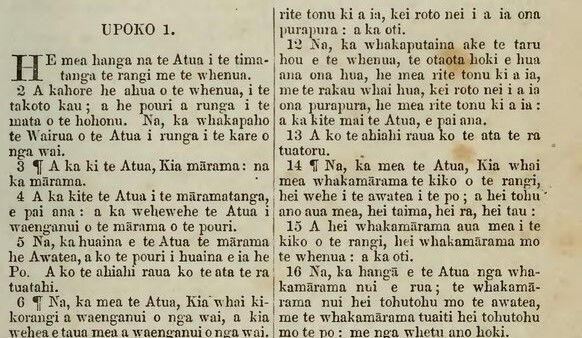
Tracking the Development of the Paipera Tapu through the 19th Century
Forrest Panther and Joshua Wilson-Black
Faculty of Arts Digital Research Seed Fund Project 2024
The first printing press arrived in Aotearoa in 1834. There was printed Māori text even before this time but the arrival of a printing press precipitated the large-scale printing of literature in Māori.
Much Māori text of the 19th century is not currently digitized in a way that is machine-readable. There are images and PDF documents, but attempts at OCR often produce mistakes. This is due to the quality of the scans, the combination of different font sizes and styles that is often difficult for OCR tools to handle, and a printing process that often produces incomplete characters. Further complications include the fact that OCR tools often make use of predictive tools based on English, rather than Māori. Accurate OCR for te reo Māori, which is sensitive to a range of historical usages and local dialectal variation, is vital for the historical disciplines in Aotearoa.
This project systematically investigates and attempts to improve the performance of OCR algorithms for use with 19th Century documents in te reo Māori.
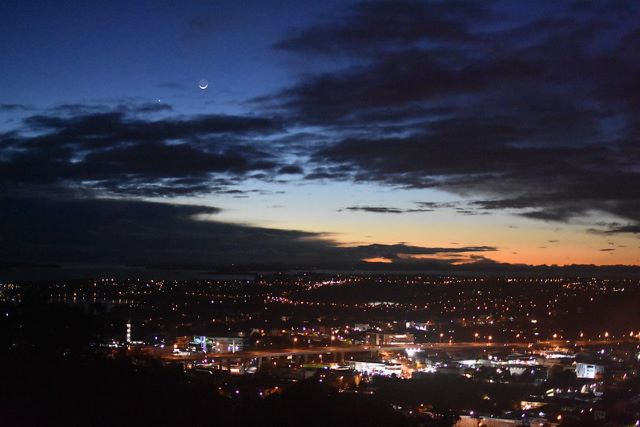
Criminalisation and Deportation of Pacific Peoples by New Zealand and Australia
Lin Mussell and Josephine Varghese
Faculty of Arts Digital Research Seed Fund Project 2024
Last year, a harrowing incident unfolded in Auckland when authorities forcibly removed a construction worker and “overstayer” from his residence in the presence of his terrified children. This event resonates with historical injustices, such as the Dawn Raids targeting Pacific Peoples between 1974-1976 and the enactment of the Pacific Islander Labourers Act of 1901 in Australia, which mandated the mass deportation of Pacific Peoples in Australia. Despite being invited to address labour shortages in New Zealand (NZ) and Australia, Pacific Peoples endure heightened scrutiny from law enforcement and immigration authorities, leading to imprisonment and deportation.
This project will create a corpus of social media content published 2022-24 by select NZ and Australian actors, which is inclusive of one year preceding and following the ‘official end’ of the COVID-19 emergency. It draws on corpus-assisted discourse analysis techniques to comparatively analyse narratives about labour, detention, and deportation of Pacific Peoples across borders.
Image: New moon over Auckland at dawn. Jin Koo Niersbach. CC BY 2.0

The possibilities of Big Podcast Data
Zita Joyce
Faculty of Arts Digital Research Seed Fund Project 2024
It’s 20 years since Ben Hammersley, writing in The Guardian, coined the term ‘podcasts’ as a portmanteau of ipod and broadcast to describe a new form of audio blogging using RSS feeds. Now Listen Notes, a podcast database company, identifies that there are more than 193,139,807 podcast episodes on the internet.
For these 20 years, academic research on podcasts tends to be small-scale and qualitative, using textual analysis, interviews, and occasional surveys to explore things like narrative, journalistic strategies, advertising, and audiences. There seems to be a very big gap in the academic literature on large scale analysis of podcast trends, though it should be possible, given that there are so many extant episodes, and all require standardised metadata to be indexed by podcast apps.
This project explores the possibilities of a) accessing / scraping large scale podcast metadata, and b) generating useful insights from it. This work will contribute to larger scale understandings of how podcasts have developed over 20 years and make methodological contributions to the field.
Image: bettnet, CC BY-SA 4.0, via Wikimedia Commons
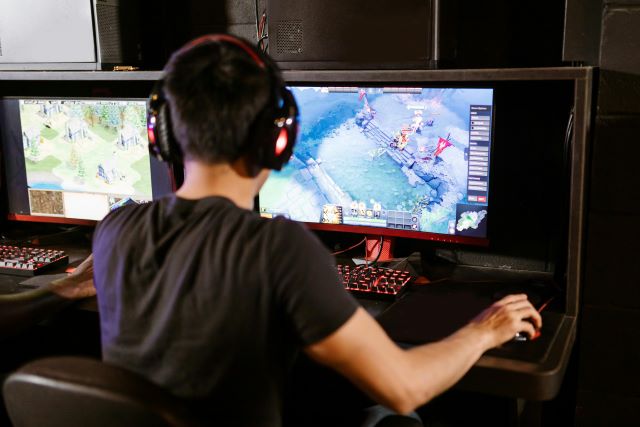
Empowering Indigenous Narratives: An Exploration of Video Games for Historical and Cultural Education
Chia-rong Wu
Faculty of Arts Digital Research Seed Fund Project 2024
This project revolves around the representation of Indigenous people and their rich history and culture in video games as a means of fostering historical and cultural education. It embarks on a substantial study that provides a broad perspective on the portrayal of Indigenous customs and practices across different cultural contexts. It thus offers insights into the common themes and unique approaches employed in representing Indigeneity.
The overarching aim is to shed light on the pivotal role that video games play in empowering Indigenous narratives and serving as educational tools for preserving and sharing cultural heritage and enhancing the visibility of Indigeneity in the digital world. These games serve as prime examples of how digital media can be utilised to showcase Indigenous stories, traditions, and values in an engaging and interactive format. By critically analysing the representation of Indigenous subjects in video games, this project aims to contribute to the ongoing discourse on cultural diversity and inclusivity in video gaming.
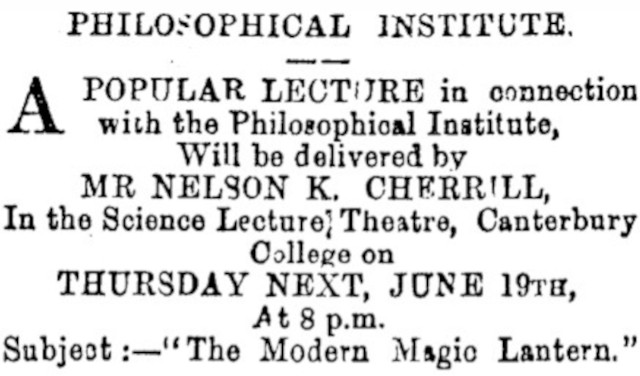
Mapping Public Lectures and Debates in 19th Century Christchurch Through Digitised Historical Newspapers
Joshua Wilson Black
Faculty of Arts Digital Research Seed Fund Project 2023
This project maps public lectures and debates in 19th century Christchurch, by applying a variety of text analytic methods to historical newspaper advertisements to extract the ‘who’, ‘when’, ‘where’, and ‘what’ of these events and produce a public facing interactive visualisation. Unlocking this information from historical newspapers will be a significant contribution to both New Zealand history and to the emerging field of experimental history of philosophy.
This project contributes to the ADL’s ongoing work on Papers Past newspaper content. The investigation of workflows for OCR improvement is particularly important for future work as OCR errors are a significant limit on the success of text analytic methods.
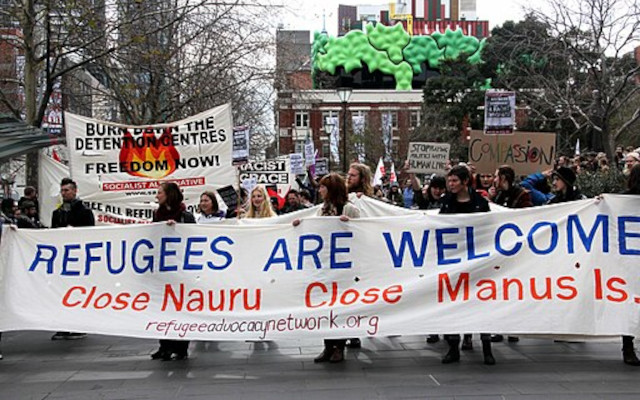
2013-2023 Electoral Immigration Detention Discourse in Aotearoa, Australia, and the UK
Lin Mussell and Sian Troath
Faculty of Arts Digital Research Seed Fund Project 2023
Immigration detention is a contested topic mobilized during elections to shore up political support and votes. These discourses reveal assumptions, values, and norms on the part of politicians, bureaucrats, pundits, and community stakeholders about social risk and deservingness. These discourses have real world impacts through policy decisions and on the lived reality of migrants.
This research project is creating a corpus of immigration detention discourse, drawing on corpus-assisted discourse analysis techniques to comparatively analyse narratives about immigration detention, specifically risk and deservingness; track how such narratives are transferred across borders (policy learning); and pin-point how narratives are reflected in subsequent policy.
Image: Takver, CC BY-SA 2.0, via Wikimedia Commons
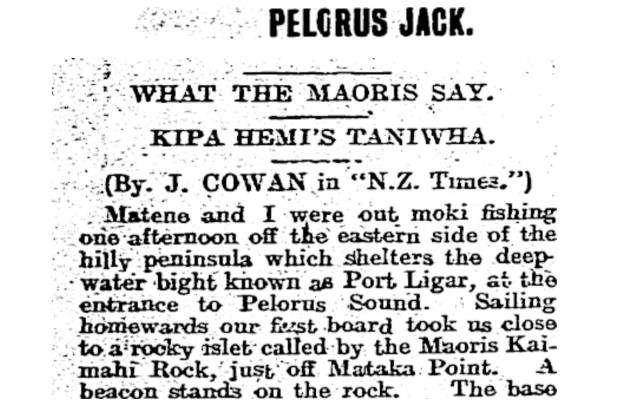
Taniwha: A Cultural History – Digital Corpus Analysis
Kirsty Dunn and Madi Williams
Faculty of Arts Digital Research Seed Fund Project 2023
This project asks “who” rather than “what” are taniwha? To whom are they related and how? Are there connections between taniwha narratives? What kinds of knowledge are embedded in these narratives? And how might taniwha narratives help us to understand and navigate current conflicts and challenges that are present both here in Aotearoa and beyond?
We are building and analysing a digital corpus to assess and address ways in which taniwha have been represented in pūrākau, literature, visual art, news media, and a range of digital and web-based source material.
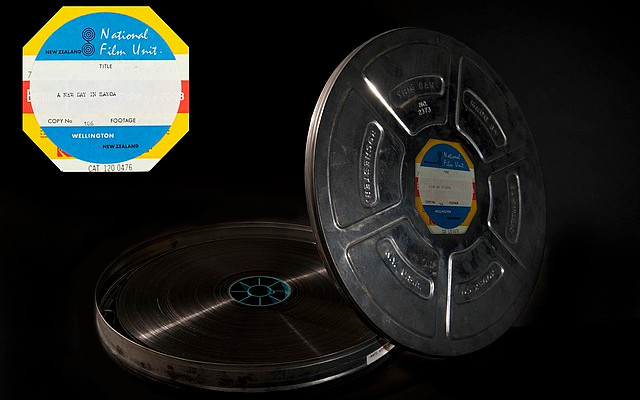
Exploring digital approaches to film studies at UC
Erin Harrington
Faculty of Arts Digital Research Seed Fund Project 2023
Over the last fifteen years, researchers in film studies and associated visual analysis fields have been exploring the use of digital and computational tools in novel ways. One strand of inquiry, based more in film and arts practice, is how the creation of videographic essays might be a form of research and meaning-making itself, as well as a mode of dissemination and a pedagogical approach. Another is how digital tools might open up new ways of thinking about film as object and artefact. Approaches are almost staggering in their diversity.
This scoping project thus aims to understand what digital approaches to film studies might look like at UC – practically, ethically, creatively. The aims of this research project are broad, and are intended as first steps towards a better understanding of this field in our context.
Image: Archives New Zealand, CC BY 2.0, via Wikimedia Commons
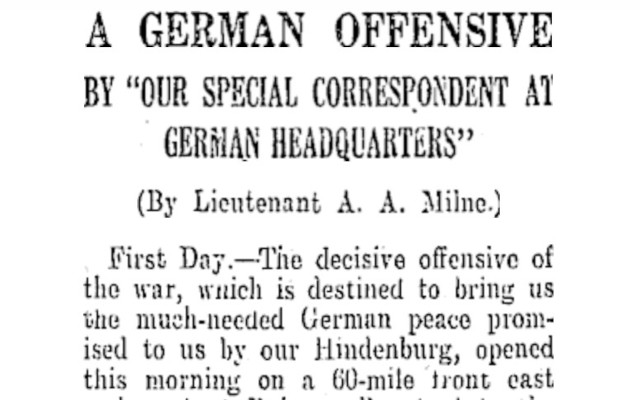
Imperial reinforcements: MI7b propaganda in New Zealand and the Dominions during the First World War
David Monger
Faculty of Arts Digital Research Seed Fund Project 2023
During 1917 and 1918, a newly established branch of British military intelligence, MI7b, recruited a collection of more than 20 talented writers from the ranks of the army to write propaganda for circulation to newspapers in Britain and its imperial Dominions (Australia, Canada, Aotearoa New Zealand and South Africa). Among the recruits were such prominent authors as the fantasy writers Lord Dunsany and H.R. Wakefield, the humourist J.B. Morton, the Irish author Patrick MacGill and the journalist and author A.J. Dawson, as well as the internationally-renowned post-war children’s author, A.A. Milne.
This project aims to expand the exploration of digital newspaper repositories, by seeking further pieces by Milne and other MI7b propagandists. The research will shine new light on Britain’s self-promotion to itself and its Dominions during the war, and increase knowledge of British propaganda activities in Aotearoa.